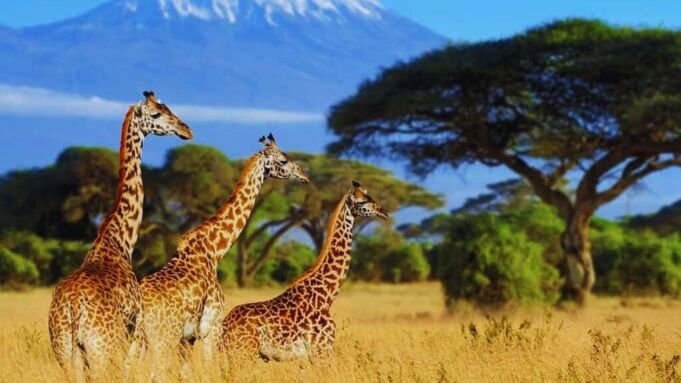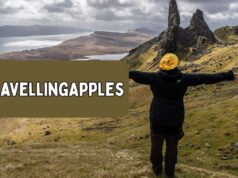An African safari offers a window into the heart of the wild, where nature unfolds in its most primal form. From the vast savannahs dotted with acacia trees to lush rainforests and stark deserts, safaris in Africa present a stunning diversity of landscapes and wildlife.
Each country offers a unique safari experience, making Africa a top destination for adventurers and nature lovers
Choosing Your Safari Destination
Choosing the right safari destination is crucial to crafting your ideal adventure in Africa. Factors such as wildlife diversity, landscape, budget, and personal interests play a pivotal role in determining whether you find yourself in the plains of the Serengeti or the forests of Uganda.
Popular Safari Countries
- South Africa: The Kruger National Park, a flagship of African conservation, boasts a high density of wild animals including the Big Five.
- Tanzania: Home to the Serengeti National Park and Ngorongoro Conservation Area, this country offers a front-row seat to the Great Migration.
- Kenya: The Maasai Mara is synonymous with wildlife and traditional Maasai culture, set against sweeping plains.
- Botswana: The Okavango Delta, a unique wetland within a desert, offers some of the most stunning wildlife sightings, especially during the flood season.
- Namibia: Etosha National Park is known for its salt pan which draws game from far and wide.
Unique Safari Experiences
- Gorilla Trekking: In the mountainous forests of Uganda and Rwanda, tracking the elusive mountain gorillas is a profound wildlife encounter.
- Desert Safaris: Namibia’s landscapes offer dramatic safaris in the Namib Desert, one of the oldest deserts in the world.
- Walking Safaris: Zambia’s walking safaris in South Luangwa National Park allow you to experience the African wilderness up close.
African Safari Tour Planning
Planning an African safari tour is an exciting venture that involves selecting the right destination, choosing the type of safari, and understanding the best times for wildlife viewing to ensure a memorable and enriching experience in the wild landscapes of Africa.
Best Time to Go
The best time for wildlife viewing is during the dry season when animals congregate around water sources. However, seasons can vary significantly between different safari regions.
Health and Safety
Travelers should consult with a travel clinic for vaccinations and malaria prophylaxis. Comprehensive travel insurance that covers medical evacuation is also recommended.
What to Pack
Pack light clothing for the day, warm layers for cool mornings and evenings, and comfortable footwear. Remember binoculars, a camera, sunscreen, and a hat.
African Safari Cost and Prices
The African Safari Cost can vary widely based on several factors, including the destination, type of accommodation, length of stay, and the level of luxury. Budget safaris may cost anywhere from $150 to $500 per person per day, typically involving group tours with basic accommodations. Mid-range safaris generally range from $350 to $800 per person per day, offering comfortable lodging and some private aspects.
Luxury and ultra-luxury safaris can exceed $800 to $2000 per day, providing private guided experiences, upscale accommodations, gourmet meals, and exclusive access to secluded wildlife areas. Additional costs can include park entrance fees, vaccinations, and international airfare. Planning with these elements in mind can help align your safari experience with your budget and expectations.
Types of Safari Experiences
The African wilderness can be done in various styles, each offering a unique vantage point. From budget camping trips to opulent lodge stays, and from exhilarating walking safaris to specialized photographic tours, the types of safari experiences are as diverse as the continent itself.
Budget vs. Luxury Safaris
Budget safaris typically involve camping and shared facilities, offering an authentic and often more adventurous experience. Luxury safaris provide exquisite lodges and tented camps with amenities like private guides, gourmet meals, and sometimes even spa treatments.
Group vs. Private Safaris
Group safaris are more cost-effective and offer a social way to experience wildlife. Private safaris provide a personalized and flexible itinerary, ideal for those seeking solitude or special interests like photography.
Specialized Safaris
- Photographic Safaris: These are tailored for photographers of all skills, focusing on optimal conditions and expert guides.
- Bird-Watching Safaris: Destinations like Uganda are ideal for spotting hundreds of bird species.
- Conservation-Focused Safaris: Participate in activities like rhino tagging or elephant conservation programs.
Must-See Wildlife and Natural Attractions

Africa’s safaris unveil a world of extraordinary wildlife and natural attractions. Each destination offers a unique glimpse into the continent’s vibrant heart and soul, from the iconic Big Five to the dramatic Great Migration and the majestic Victoria Falls.
Iconic Wildlife
The Big Five are a major draw, but Africa’s wildlife also includes spectacular sightings of cheetahs, wild dogs, giraffes, and more.
Natural Wonders
Witness the Great Migration in East Africa, an awe-inspiring spectacle of life and death. Another must-visit is Victoria Falls, which borders Zambia and Zimbabwe.
Top 5 Safest African Countries
When planning a trip to Africa, safety is a priority for many travelers. The continent offers some remarkably secure destinations known for their stable political climates, friendly populations, and effective law enforcement. Here are the top five safest African countries to consider for your next adventure:
Botswana
Botswana is frequently cited as one of the safest countries in Africa due to its stable democracy and low crime rate. It is globally renowned for its wildlife and conservation efforts, particularly in the Okavango Delta and Chobe National Park. The government’s commitment to maintaining peace and security makes it a top destination for safaris and exploration.
Namibia
Namibia attracts tourists with its stunning landscapes, from the Namib Desert to the Atlantic coastlines. It’s known for its robust legal system and effective police force, ensuring a safe environment for tourists. Namibia’s low population density also means fewer urban safety concerns, making it ideal for those looking to explore its vast, dramatic terrains.
Mauritius
While technically an island nation in the Indian Ocean, Mauritius is part of Africa and is celebrated for its incredible safety record. The country boasts a stable political scene and a friendly atmosphere, making it perfect for beach lovers and culture seekers. Its well-developed tourism infrastructure ensures that visitors can enjoy the island’s tropical beauty with peace of mind.
Ghana
Known as one of the most peaceful countries in West Africa, Ghana has a reputation for hospitality and safety. It has a relatively stable political environment and is one of the fastest-growing African economies, which contributes to its security. Visitors to Ghana can enjoy a variety of cultural and natural attractions, including bustling markets, historic forts, and secluded beaches.
Rwanda
Rwanda has undergone a significant transformation and is now known for its cleanliness, orderliness, and safety. The government has invested heavily in community policing and infrastructure, making Kigali one of the safest capitals in Africa. Rwanda is also a leader in conservation, with tourists flocking to see its famous mountain gorillas in Volcanoes National Park.
Cultural Considerations and Responsible Tourism
Understanding and respecting local customs and etiquette is vital, especially during community visits. For example, always ask for permission before taking photographs of local people.
Choose to stay at eco-friendly accommodations that support conservation efforts and provide fair employment to local communities. Tourists can also support local projects by purchasing local crafts and products.
Conclusion
An African safari is more than a trip; it’s an immersion into an environment where wildlife and nature continue to dictate the rhythms of life. With the right preparation and respect for the natural and cultural surroundings, your safari can be a lifetime journey.















[…] game drive on African Kenyan safaris offers an unparalleled opportunity to witness the untamed beauty of the African wilderness. Through […]
Comments are closed.